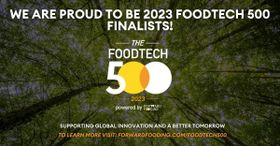Is Plant-Based Formula Good for Babies? Key Benefits Explained
Published May 23, 2024

Whether due to allergies, ethical choices, or health concerns, you might question if plant-based formula can feasibly replace dairy in your baby’s diet. This focused analysis zeroes in on the core aspects: is plant-based formula good for babies, tackling the fundamentals—nutrition, safety, and allergenic considerations—to deliver clarity on plant-based formulas for informed parental decisions.
Key Takeaways
Plant-based infant formulas use a variety of proteins, such as soy isolate and hydrolyzed rice protein, to match the amino acid profile of breast milk and are fortified with essential nutrients to adhere to FDA regulations and ensure infant growth and health.
Plant-based formulas offer alternatives for infants with lactose intolerance or milk protein allergies, and are developed to be nutritionally complete, while some formulas also address environmental and ethical considerations.
While plant-based formulas undergo rigorous safety testing and meet nutrient specifications, parents choosing a vegan formula must carefully consider nutritional adequacies, especially concerning vitamin B12 and vitamin D, and avoid homemade vegan formulas due to potential health risks.
Understanding Plant-Based Infant Nutrition
The field of plant-based infant nutrition utilizes the power of plants to nourish our little ones, making it quite intriguing. Common ingredients in plant-based formulas include soy protein isolate, hydrolyzed rice protein, and potato protein, each chosen for their specific nutritional properties. Quinoa protein, for instance, is appreciated for its complete amino acid profile. Even legumes like peas find their place in these formulas, contributing valuable lysine content.
These meticulously formulated products aim to replicate the essential amino acid composition of breast milk. Consequently, they ensure high protein quality, digestibility, and negligible antinutritional factors.
The Role of Soy Protein Isolate
Soy protein isolate plays a significant role in plant-based infant formulas. This high-purity protein product is not just a primary protein base but also distinguishes plant-based infant formulas from regular soy beverages. Significantly, soy protein isolate, comprising about 40% of the protein content in raw soybean, needs supplementation with methionine, carnitine, and taurine because soy alone doesn’t provide a complete protein.
Soy protein-based formulas typically contain a mixture of vegetable oils, such as:
soy
palm
sunflower
olein
safflower
coconut oils
These oils contribute to the fat content of the formula and provide essential fatty acids. They help in the overall nutritional balance of the formula. Despite missing some functional ingredients present in cow’s milk formulas, soy-based formulas have carved out a significant market share, making up over 25% of the infant formula market in the United States.
Hydrolyzed Rice Protein Formulas
Beyond soy, hydrolyzed rice protein-based infant formulas offer another plant-based alternative. These formulas are modified to meet infants’ nutritional needs by adding essential amino acids, such as lysine, and undergo enzymatic hydrolysis to improve water solubility and digestibility. They can be a lifesaver for infants allergic to cow’s milk who may also react to soy protein, as hydrolyzed rice protein formulas lack the phytoestrogens found in soy. Therefore, these formulas are recognized as a safe and nutritionally adequate alternative for infants allergic to other protein sources like cow’s milk and soy.
Other Plant Proteins in Infant Formulas
The world of plant proteins is vast and diverse, presenting a variety of potential ingredients for inclusion in infant formulas. Some examples of plant proteins being explored for their potential in infant formulas include:
Quinoa
Pea
Faba bean
Lentil
Chickpea / Almond
Legume-based proteins like pea and chickpeas, rich in essential amino acid lysine, however, have lower levels of sulfur-containing amino acids. Almond protein, a source of all essential amino acids, although lower in sulfur amino acids, lysine, and threonine, exhibits good digestibility.
Plant-Based Formula vs. Cow's Milk-Based Formula
While comparing plant-based formulas with cow’s milk-based ones, bear in mind the significant differences in their nutritional components. Plant-based alternatives generally have:
Less energy
Less protein
Less carbohydrates
Less vitamins
Less minerals
However, it doesn’t mean that plant-based formulas are nutritionally inferior.
For instance, while cow’s milk-based formulas have been adapted to better suit infant digestion by increasing lactose content and substituting butterfat with vegetable oils, plant-based formulas can be a godsend for babies with lactose intolerance. Similarly, plant-based formulas, such as soy formulas, are considered a safe alternative for children with concerns regarding cow’s milk protein allergies.
Addressing Nutritional Gaps
The FDA mandates infant formulas to contain minimum levels of 29 nutrients and maximum levels for 9 of these nutrients to ensure infant growth and health. Given the inherently low protein content and quality in many plant-based drinks, excluding soy, formulas are enhanced with protein fortification to achieve the optimal nutrient composition for infants. Fortification is also crucial for adding micronutrients that are significantly low or absent in plant-based drinks when compared to cow’s milk, like vitamins C, A, and K2.
Therefore, specific plant-based formulas, such as those using soy protein isolate and other plant-based ingredients, are fortified with an array of nutrients including:
proteins
fats
carbohydrates
vitamins
minerals
This is done to meet or exceed the nutritional profile of breast milk and conventional formulas.
Managing Lactose Intolerance
For infants and toddlers with lactose intolerance, plant-based formulas are a godsend given their inherent lactose-free property. Vegan baby formulas, being free of animal-derived components, provide a plant-based nutrition option completely devoid of lactose, catering to the needs of babies with lactose intolerance.
To meet the requirements of young children who cannot tolerate lactose, plant-based infant formulas are designed to be nutritionally complete, providing an alternative to cow’s milk.
Solutions for Milk Protein Allergy
Plant-based formulas also offer a suitable alternative for infants with cow’s milk protein allergy. Certain plant-based formulas are developed to meet the nutritional needs of babies allergic to cow’s milk proteins. Infants with dairy or soy allergies may experience improvements in skin and digestive issues when fed with plant-based formulas.
Bébé M, a vegan baby formula made from hydrolyzed rice proteins, is one such example designed for infants with milk protein allergy.
Evaluating the Safety of Plant-Based Baby Formulas
Rigorous measures are in place to ensure the safety of plant-based baby formulas. For instance, Else Nutrition conducts a nutritional and microbiology analysis for each production batch to ensure the highest level of safety for their plant-based formula. A formula must be free from any ingredients the child may be allergic to, to be considered safe, and plant-based formulas like Else’s are often free from common allergens such as dairy and soy.
Moreover, by being free of hormones and antibiotics, plant-based formulas can offer safety benefits, possibly mitigating milk allergy risks associated with these substances.
FDA Regulations and European Food Safety Authority Guidelines
FDA regulations require all formulas, plant-based ones included, to comply with established nutrient specifications for legal marketing. Manufacturers are required to notify the FDA before marketing any new infant formula, confirming that it meets federal nutrient requirements. The FDA’s framework includes postmarket surveillance for formulas with new ingredients, ensuring safety and proper development in infants, which applies equally to plant-based formulas.
Therefore, regulatory guidelines from the FDA mandate that plant-based formulas must contain a balanced nutrient profile, including appropriate amounts of protein, carbohydrates, fats, and vitamins.
Clinical Studies on Babies Fed Soy Formula
The safety of plant-based formulas extends beyond regulations and into clinical studies. Scientific studies have found no adverse impact on sexual development, immune function, or thyroid function in infants fed soy formula. Furthermore, clinical evaluations indicate that soy formula does not increase the risk for neurodevelopmental issues such as epilepsy, ADHD, ASD, or decreased developmental status in infants.
The Benefits of Choosing a Vegan Formula
Selecting a vegan formula signifies more than just ensuring your child’s health and nutrition; it embodies ethical and environmental considerations as well as potential health benefits. Veganism goes beyond just dietary choices to encompass a lifestyle that avoids animal products and exploitation. However, safety concerns about vegan formulas among parents arise from misconceptions that ‘vegan’ automatically means healthy, which underscores the necessity of proper vetting and understanding of these products.
Ethical and Environmental Considerations
Choosing a plant-based formula is consistent with the ethical principles of veganism, supporting a more sustainable and cruelty-free approach to infant nutrition. Moreover, vegan baby formulas contribute to a lower carbon footprint compared to the environmental costs of animal-based formula production.
Vegan baby formulas also adhere to rigorous organic agriculture standards, which can lessen the environmental impact of their production.
Potential Health Advantages
From a health perspective, vegan baby formulas are free from hormones and antibiotics, reducing the potential exposure of infants to these substances. Vegan baby formula companies often adhere to higher standards in selecting raw materials, ensuring non-GMO and allergy-friendly options.
Furthermore, plant-based diets are often higher in fiber and antioxidants, which are beneficial nutrients for infants.
Common Concerns with Plant-Based Formulas
Despite the numerous benefits of plant-based formulas, it’s necessary to consider several legitimate concerns. These include potential food allergies and the crucial task of ensuring normal growth and development. Hydrolyzed rice formulas fortified with essential amino acids and micronutrients support the growth and development of infants allergic to cow’s milk. The American Academy of Pediatrics endorses soy-based formulas for normal growth and development in term infants who are not breastfed and are allergic to cow’s milk. However, soy is one of the eight most common allergens among infants, and symptoms of allergies to dairy or soy in infants can manifest as hives, eczema, and digestive concerns, potentially leading to poor growth if not properly managed.
Some parents choose soy-free, hormone-free, and antibiotic-free plant-based formulas to avoid potential allergens and contaminants for their babies.
Preventing Food Allergies
Current research suggests that introducing dietary allergens early in an infant’s diet can be safe and may help prevent food allergies. Some recommendations for introducing highly allergenic foods early on include:
Peanut butter or peanut powder mixed with water or breast milk
Cooked egg, mashed or scrambled
Wheat, such as bread or crackers
Cow’s milk, yogurt, or cheese
Introducing plant-based formulas that contain allergens like almond and buckwheat may also influence the risk of food allergies, yet the exact impact remains unclear. It is always important to consult with a pediatrician before introducing allergenic foods to your baby’s diet.
If parents are concerned about soy allergies or sensitivities, they should consider options that are free from soy.
Ensuring Normal Growth and Development
Plant-based formulas are designed to provide essential nutrients needed for infants’ growth and development. Iron deficiency in infants can lead to serious health issues including weakened immune function, delayed motor development, and potential long-term learning difficulties. Infants at the highest risk for iron deficiency typically include those born to iron-deficient mothers, premature infants, those with low birth weights, or those who did not benefit from delayed cord clamping.
Symptoms of iron deficiency in infants can manifest as fatigue, weakness, and pale skin, but these are often difficult to notice, underscoring the importance of blood tests for accurate monitoring. Iron fortification in infant formulas has been instrumental in significantly reducing the incidence of iron deficiency and anemia in infants.
Transitioning to Solid Foods
When babies move away from exclusive breastfeeding or formula feeding, they should start experimenting with solid foods, while maintaining their intake of plant-based formula for nutritional needs. From around six or seven months of age, infants can start trying solid foods and finger foods, provided they are able to sit independently and can chew their food, even if they haven’t yet developed teeth.
As the baby’s intake of solid foods increases, their consumption of plant-based formula is expected to gradually decrease.
Timing and Types of Solid Foods
Complementary foods should generally be introduced around six months of age, not before four months, and delaying beyond six months could cause reluctance in trying new foods. Babies are ready for solid foods when they can:
sit up
have good head and neck control
keep a steady head
begin to show interest in various textures by putting their hands or toys in their mouth.
The first solid foods introduced to infants should be single-ingredient foods without added sugar or salt to monitor for any potential allergic reactions. As infants grow, parents can introduce finely chopped soft finger foods and a variety of plant-based options such as fruits, vegetables, grains, and beans starting from around 8 to 10 months of age.
Maintaining Balanced Nutrition
As babies transition to solid foods and reduce their formula intake, it is critical to ensure they receive balanced nutrition from a variety of plant-based sources, including adequate levels of vitamins, minerals, protein, and fiber. Iron is essential for a baby’s development, especially between 6 months and 3 years of age, and can be provided through iron-fortified cereals and other iron-rich plant foods with strategies to enhance iron absorption, such as combining with vitamin C, using cast iron cookware, or consuming with a protein source.
Breastfeeding alone may not suffice for a baby’s iron needs after the first 6 months, highlighting the importance of incorporating iron-rich solids into their diet, potentially supported by prenatal strategies like delayed cord clamping and ensuring maternal iron sufficiency. Introducing new solid foods to babies should be done one at a time and in small amounts, allowing parents to monitor for allergies or intolerances.
The Market for Plant-Based Baby Formulas
The market for plant-based baby formulas is notably diverse, with not only soy-based options available but also soy-free alternatives such as rice based infant formula. Rice is a widely cultivated raw material used in the production of plant-based infant formulas, suggesting both high availability and sustainability, which are key considerations in the market.
Companies like Else Nutrition offer an array of plant-based nutrition products such as infant cereals, toddler formulas, and kids’ shakes, featuring whole plant ingredients processed minimally to maintain their natural nutrient composition.
Vegan Formula Options
The market is replete with vegan formula options. Some soy-based vegan formulas available include:
Nestlé Good Start alsoy
Similac Isomil with DHA
Gerber Good Start Soy Protein Infant Formula
EARTH’S BEST organic soy-based formula
Sprout organic plant-based infant formula
There are also vegan baby formulas available that are organic and free from dairy and soy.
In the United States, while there is no vegan baby formula available, there is Else Nutrition’s vegan toddler formula that utilizes buckwheat and almonds for protein.
Additional Considerations
When selecting a formula, consider a variety of factors. These include Clean Label certification standards and allergy-friendly options. The presence of Clean Label certification in formulas indicates that they are free from artificial ingredients and synthetic chemicals, which can be an important factor for parents seeking natural options.
Parents may also seek the assistance of a registered dietitian to create a nutritionally adequate diet for children with allergies, using plant-based foods and suitable formulas.
Factors to Consider When Choosing a Formula
Clean Label is a consumer-driven movement that emphasizes food and ingredient transparency. It requires products to contain:
natural, familiar, and simple ingredients
ingredients that are easy to recognize, understand, and pronounce
no artificial ingredients or synthetic chemicals
Else’s plant-based formula is an example of a product meeting the Clean Label certification standards. It is:
100% organic
Vegan
Non-dairy
Soy-free
Free of hormones, antibiotics, artificial colorings, flavors, and GMOs.
When choosing an allergy-friendly formula, it’s important to consider if the infant has a cow’s milk allergy or soy allergy, as these are common among children and can influence formula selection.
There are three main types of allergy-friendly formulas to consider:
Partially hydrolyzed formulas: These break down cow’s milk proteins into smaller pieces but are not suitable for infants with cow’s milk allergy.
Extensively hydrolyzed formulas: These provide nutrition for infants allergic to cow’s milk protein and are tolerated by about 90% of babies with this allergy.
Amino acid-based formulas: These are suitable for children who cannot tolerate extensively hydrolyzed formulas and contain no intact proteins, making them generally tolerable for most children.
The Clean Label Project has conducted extensive testing on infant formulas and baby foods, revealing the presence of contaminants such as lead, arsenic, and BPA in many products. Clean Label Project’s research includes a 5-star rating system on their website to help consumers discern the contamination levels of various infant formulas and baby food products.
According to the Clean Label Project, soy-based infant formulas have been found to contain significantly higher levels of cadmium compared to other formulas. Over 25% of baby food samples tested by the Clean Label Project exceeded state or federal guidelines for contaminants.
Supplemental Needs for Vegan Babies
Ensuring that vegan babies receive adequate levels of vitamin B12 and vitamin D is vital. Adequate levels of these vitamins are crucial for the health of vegan infants, but challenges such as sourcing vegan vitamin D can arise. Plant-based formulas commonly contain vitamin D3 derived from lanolin, which is not a vegan source, hence not all plant-based formulas are completely vegan.
Children aged 12 to 24 months should receive 600 IU of vitamin D each day to meet their nutritional needs. The vegan alternative to vitamin D3 in plant-based formulas is vitamin D2, which may be less effective in raising active vitamin D levels in the body.
Vitamin B12 Supplementation
Vitamin B12 is crucial for the health of vegan babies. Vegan babies should start taking a vitamin B12 supplement as advised by the Institute of Medicine from the time of birth. This is to ensure they receive sufficient levels of this essential nutrient..
Important factors to consider in vegan baby formulas include a nutritional profile fortified with B12.
Vitamin D Considerations
Vitamin D3 is more effective than vitamin D2 at raising and maintaining overall vitamin D levels in the body. Vitamin D2 is typically derived from plant sources or fungal sources, while vitamin D3 is usually derived from animal sources.
All infants, irrespective of being fed breast milk, cow’s milk formula, or soy formula, need vitamin D supplementation to prevent deficiencies. Some plant-based formulas may include vitamin D2 instead of vitamin D3 which may not be as effective in maintaining the vitamin D stores in an infant’s body. Parents should ensure that the plant-based formula they choose has adequate levels of vitamin D supplementation to meet their infant’s needs. Infant formulas are regulated to ensure they meet the nutritional requirements for infants, including the fortification of vitamin D.
Caution Against Homemade Vegan Formulas
Despite the potential allure of homemade vegan formulas for some, they can pose life-threatening health risks for infants. There have been instances where infants were harmed, and a baby almost lost their life due to homemade vegan formulas. Homemade vegan baby formulas can have nutritional contents that are either too low or excessively high, which can lead to severe health complications.
Therefore, due to the dangers associated with DIY vegan formulas, parents are strongly cautioned to use commercially prepared, regulated vegan formulas.
Risks of DIY Formulas
Homemade vegan baby formulas can lead to nutritional deficiencies and health risks due to their unregulated nature. Excessive amounts of certain nutrients in homemade formulas can be harmful to an infant’s health.
Furthermore, preparing baby formula at home increases the risk of contamination and infections from pathogens such as Salmonella or E. coli.
Professional Guidance
Given the risks associated with homemade vegan formulas, it’s essential to consult healthcare professionals or plant-based dietitians before considering these alternatives. Introducing a vegan formula to a newborn should be done after obtaining guidance from a vegan dietitian.
Summary
As we’ve seen, plant-based formulas offer a viable and nutritionally adequate option for infant feeding. They provide essential nutrients mimicking those of breast milk, offer safe alternatives for babies with lactose intolerance or cow’s milk protein allergies, and align with ethical and environmental considerations. However, these formulas are not without their challenges.
From managing potential food allergies to ensuring the formulas meet the nutritional needs of growing infants, parents must make informed decisions guided by professionals. The market offers a variety of options, but parents must consider factors such as Clean Label certification standards and allergy-friendly options. While homemade vegan formulas might seem tempting, they pose significant health risks and should be avoided. Instead, commercially prepared, regulated vegan formulas should be chosen.
Frequently Asked Questions
What are some common proteins used in plant-based infant formulas?
Common plant proteins used in infant formulas include soy protein isolate, hydrolyzed rice protein, and potato protein, making them suitable options for plant-based infant formulas.
Are plant-based formulas safe for infants?
Yes, plant-based formulas are safe for infants as they adhere to FDA regulations and undergo clinical studies for safety.
What are some potential health advantages of vegan baby formulas?
Vegan baby formulas offer the advantage of being free from hormones and antibiotics, and often adhere to higher standards in selecting raw materials. This can be beneficial for the baby's health.
Should I consider making a homemade vegan formula for my baby?
No, it is not safe to make a homemade vegan formula for your baby due to potential health risks.
The content and advice provided in this article is for informational purposes only and is not a substitute for medical diagnosis, treatment, advice for specific medical conditions. Always consult a pediatrician to understand the individual needs of your child. The article expresses the views of the brand editor.










